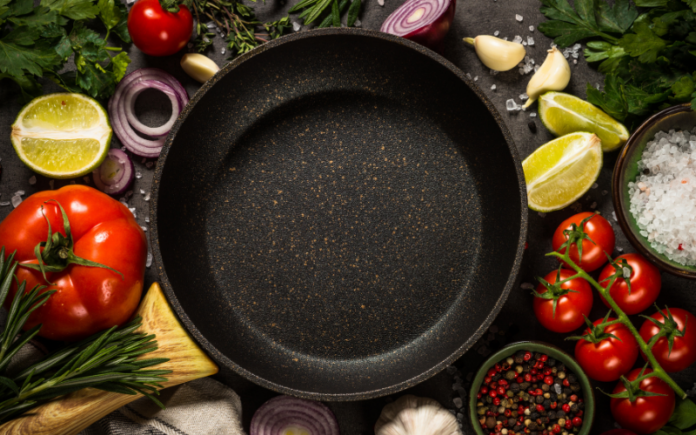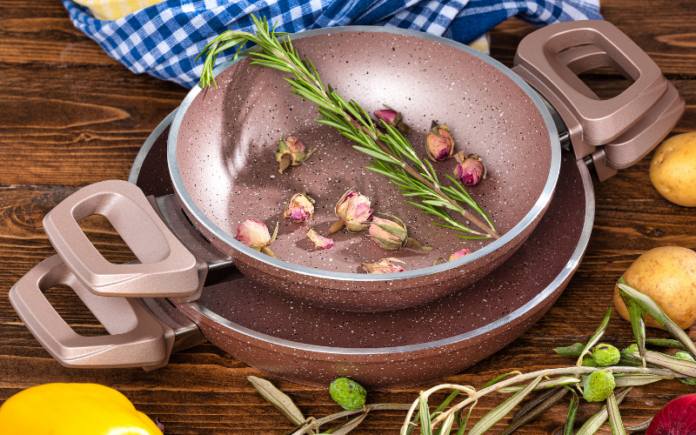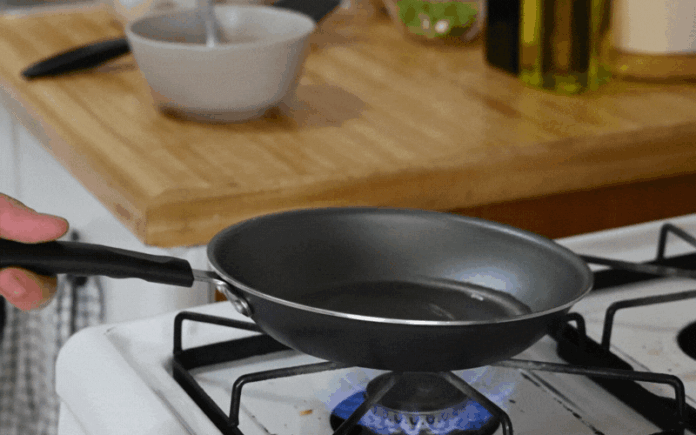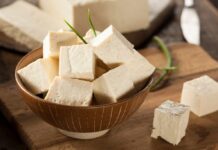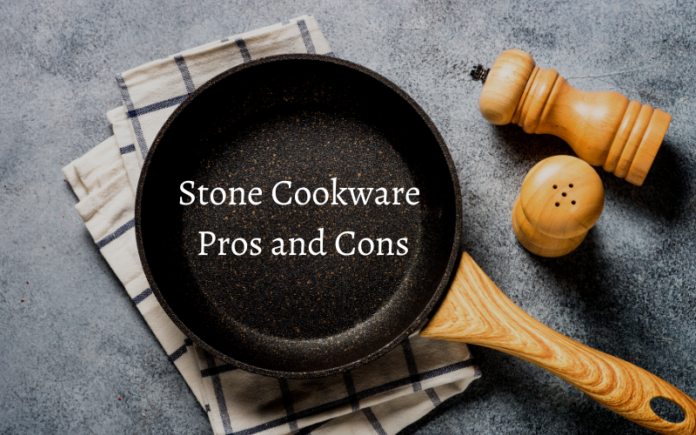
If you’re looking for the best stone cookware but aren’t sure what the advantages and disadvantages of this type of cookware are, we’re here to help! With our assistance, you won’t have to waste an eternity searching the Internet on your own.
Getting lost in the deluge of results you’ll likely get when searching the Internet isn’t anyone’s idea of a good time, and we get that. That is why we took it upon ourselves to do the research on your behalf and summarize all the info into a neat guide you’ll be able to read in only a few minutes!
You can forget about looking through a plethora of incomplete and confusing info online because we provide you with a user-friendly guide no one will have issues understanding.
Explaining everything in layman’s terms is a must, and we understood the assignment, so anyone can understand our guide no matter if you know what stone cookware is or don’t.
With that being said, let’s get right into explaining what stone cookware is and what you can expect from using it.
A Guide To Understanding Stone Cookware
Stone cookware, also known as stoneware, is cookware that is typically made of stone clay. This means that this type of cookware is usually lead-free, cadmium free, as well as free of other toxins.
If you’re interested in getting the healthiest and safest type of cookware for your home, stoneware and granite cookware are a couple of the safest options to go for.
They don’t normally contain toxins that are regularly associated with other nonstick cookware made with certain metals, such as aluminum, copper, cast iron, and stainless steel.
These cookware coatings are typically fused at over 1000°C. That is what makes the surface of this cookware non-stick, which is very practical and convenient, but also quite healthy. You don’t have to use a ton of unhealthy oil or grease when making your food with stoneware.
However, almost all the products have their pros and cons, and you should be aware of all the advantages and disadvantages of stone cookware before you buy it. That is why we provide you with a short but comprehensive list of the pros and cons you should be aware of below.
The Pros and Cons of Stone Cookware
Pros
- No harmful chemicals—Stone cookware is 100% free of all toxic chemicals that are typically associated with other metal materials used to make cookware. Stoneware doesn’t contain ant POFS, lead, nickel, cadmium, or zinc, which makes it completely safe to use and non-toxic
- Healthy—Unlike cast iron cookware, stoneware does not release minerals, which makes it very healthy. You won’t have to worry about mineral overconsumption issues when you have stone cookware or any other health issues for that matter
- Non-stick—Since stone cookware is non-stick, you don’t have to use a ton of oil or butter to make your meals, which is not only healthier but more convenient as well. You can prepare your eggs or other meals without worrying about them sticking to the pan
- Even heat distribution—Stone cookware provides even heat distribution, which saves you the struggle of turning your food all the time to make sure the heat catches all the sides. You can rest assured your steak or any other food will be cooked all the way through effortlessly, even if you turn it over only once
- Highly durable and scratch resistant—The materials used to make stoneware are very durable and scratch-resistant, so you don’t have to worry about it chipping, breaking, or having a short service life
- Stylish—The design of stone cookware is usually very stylish and decorative. You can get this as a gift for someone or have a super stylish decorative cookware as a statement piece on your table whenever you want to
- Easy to clean—Stone cookware is super easy to clean and maintain as well. You can usually pop it into your dishwasher and forget about struggling to wash it by hand
Cons
- Expensive—No matter if you get one stoneware pan or an entire set, the prices are usually higher than other cookware out there. If you want a high-quality set from a well-known brand, the price will probably be even higher
- No high heat—You can’t use your stone cookware at high heat. You can only go for medium heat if you don’t want to decrease your cookware’s durability
- No metal utensils—Using metal utensils can damage your stoneware, so you shouldn’t do so. You can go for plastic or wooden utensils instead
- Not always oven-safe—Although you may use your stoneware in the oven, you have to be careful with the heat. Temperatures over 400–450 degrees aren’t safe for your stone cookware
Stone Cookware—Buying Guide
If you aren’t sure what factors to consider when purchasing your stone cookware, don’t fret! We’re here to provide you with a list of three main factors you should pay attention to when choosing the best stoneware—check it out:
1. Quality
The quality of the stone cookware you’re getting is the first and most important factor to consider. If you want your stoneware to last for a long time and not chip or break after the first use, you should make sure that it is made of high-quality materials.
That way, you won’t have to worry about breaking your bank getting a new cookware set every once in a while.
2. Durability
The next thing you need to factor in is the cookware’s durability. This ties well with the quality of the product, but you should know what materials are durable in order to choose wisely.
Porcelain clay coating and granite coating are excellent choices regarding durability. They are usually also non-stick, which makes your cookware non-stick and super convenient.
3. Design
The last factor you should pay attention to is the design of the stoneware you’re interested in. You want your set to be stylish and decorative, but that is not all you should think about when it comes to design.
It also needs to be practical and feature an ergonomic design (or other features you would find useful). That is why you need to make sure that the design of your cookware fits all your needs and meets your requirements.


